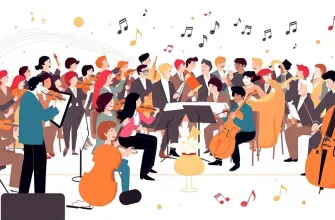Soviet cinema has always been rich with stories that delve into the human spirit, particularly the realm of creativity. These films not only entertain but also inspire, showcasing the struggles and triumphs of artists, writers, and musicians. Here's a curated list of 10 Soviet films that celebrate creativity, each with an English version available, offering a unique window into the creative process and the cultural landscape of the time.
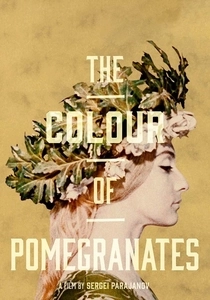
The Color of Pomegranates (1969)
Description: This visually stunning film by Sergei Parajanov is a poetic biography of the Armenian poet Sayat-Nova, using a series of tableaux to explore his life, creativity, and the cultural heritage of Armenia.
Fact: Parajanov was imprisoned after the film's release due to its perceived nationalist themes, but it has since been recognized as a masterpiece of visual storytelling.
 Watch Now
Watch Now 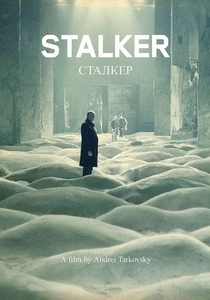
Stalker (1979)
Description: Another Tarkovsky gem, 'Stalker' delves into the metaphysical journey of three men into a mysterious zone where wishes can come true. It's a profound meditation on the nature of desire, creativity, and the human condition.
Fact: The film was shot in Estonia, and the Zone was created using real industrial landscapes, giving it an eerie, otherworldly feel.
 Watch Now
Watch Now 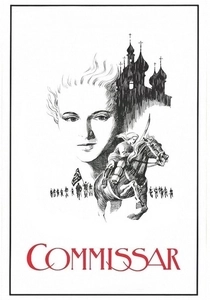
The Commissar (1967)
Description: Set during the Russian Civil War, this film follows a female commissar who is forced to stay with a Jewish family, leading to a profound exploration of human relationships, duty, and the creative resilience of the human spirit.
Fact: The film was banned in the Soviet Union for 20 years due to its sensitive portrayal of Jewish life and the war.
 Watch Now
Watch Now 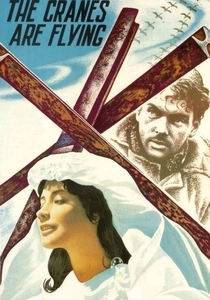
The Cranes Are Flying (1957)
Description: This poignant drama captures the life of a young woman whose fiancé goes to war, leaving her to navigate the challenges of love, loss, and her own artistic aspirations. It's a testament to the resilience of the human spirit and the power of art in times of adversity.
Fact: The film won the Palme d'Or at the Cannes Film Festival in 1958, making it one of the most celebrated Soviet films internationally.
 30 Days Free
30 Days Free 
The Ascent (1977)
Description: Set during World War II, this film follows two Soviet partisans on a mission that tests their moral and physical endurance. It's a stark portrayal of human creativity in survival and resistance.
Fact: Larisa Shepitko, the director, tragically died in a car accident shortly after the film's release, leaving behind a powerful legacy.
 30 Days Free
30 Days Free 
The Artist from Gribov (1989)
Description: This film tells the story of a young artist in a small village who struggles to find his place in the world, exploring themes of identity, creativity, and the clash between tradition and modernity.
Fact: The film was one of the last Soviet productions before the dissolution of the USSR, reflecting the changing times.
 30 Days Free
30 Days Free 
The Irony of Fate (1975)
Description: A classic Soviet comedy about a man who, after a night of drinking, ends up in Leningrad instead of Moscow, leading to a series of humorous and romantic misadventures. It's a playful exploration of fate, love, and the creative chaos of life.
Fact: The film is traditionally shown on New Year's Eve in Russia, becoming a cultural phenomenon and a symbol of the holiday season.
 30 Days Free
30 Days Free 
The Mirror (1975)
Description: Andrei Tarkovsky's masterpiece is a deeply personal and poetic exploration of memory, time, and the creative process. It intertwines the life of a dying poet with his childhood memories and the broader historical context of Russia.
Fact: The film was initially met with mixed reactions in the USSR but has since been recognized as a landmark in world cinema for its innovative narrative structure.
 30 Days Free
30 Days Free 
The House on the Embankment (1976)
Description: A complex narrative about the residents of a prestigious Moscow apartment building, this film examines the lives of artists, writers, and intellectuals during the Stalinist purges, showcasing the creative spirit under oppression.
Fact: The film was based on the real-life experiences of people living in the House on the Embankment, a symbol of Soviet elite housing.
 30 Days Free
30 Days Free 
The Garage (1979)
Description: A satirical comedy about the absurdities of Soviet bureaucracy, where a group of car owners fight over parking spaces in a communal garage, highlighting the creative ways people navigate bureaucratic mazes.
Fact: The film was directed by Eldar Ryazanov, known for his sharp social commentary through humor.
 30 Days Free
30 Days Free 





